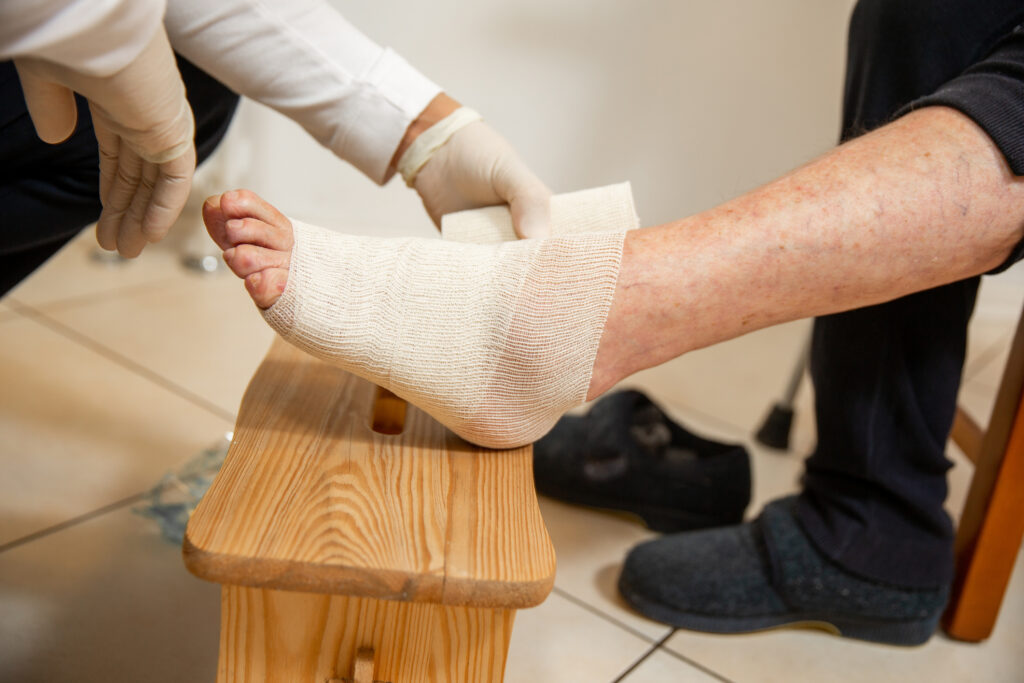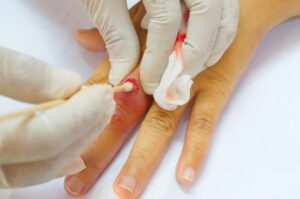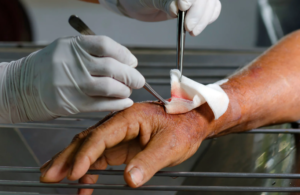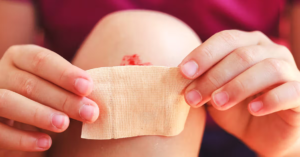Non-healing foot wounds pose a serious challenge for individuals with diabetes, often leading to complications that affect mobility and overall quality of life. These wounds can result from poor circulation, neuropathy, infections, and continuous pressure on certain areas of the foot. Without proper care, they may worsen, causing infections that can spread or require more invasive interventions. Orthopedic Treatment for Non-Healing Foot Wounds in Diabetes offers a specialized approach to managing these conditions, focusing on healing, mobility restoration, and prevention of further complications.
Tec Orthopedics provides expert care for patients struggling with diabetic foot wounds, combining advanced diagnostic methods, personalized treatment plans, and compassionate support. Patients experience not only wound recovery but also improved overall foot health and functionality.
Understanding Non-Healing Foot Wounds in Diabetes
Non-healing foot wounds, often referred to as chronic ulcers, occur when the body fails to repair tissue damage effectively. Diabetes increases the risk of these wounds because of reduced blood flow, peripheral neuropathy, and compromised immune responses. Even minor injuries, such as a small cut or blister, can escalate into significant wounds if not addressed promptly.
Complications from untreated foot wounds can be severe. Infection may spread to deeper tissues or bones, sometimes leading to hospitalization or surgical intervention. Loss of mobility and independence can occur when wounds make walking painful or unsafe. Orthopedic Treatment for Non-Healing Foot Wounds in Diabetes is critical for addressing both the wound and any underlying musculoskeletal issues that may hinder recovery. By treating the foot holistically, orthopedic specialists can prevent further complications and support long-term foot health.
Role of Orthopedic Treatment in Managing Foot Wounds
Orthopedic care plays a crucial role in facilitating the healing of diabetic foot wounds. Specialists focus on multiple aspects:
- Infection Management: Orthopedic teams identify and treat infections early to prevent them from worsening. This often involves wound cleaning, antibiotics, and monitoring for signs of systemic infection.
- Tissue Preservation: Techniques are applied to protect healthy tissue while promoting regeneration. This can include advanced dressings, debridement, and therapies to enhance circulation.
- Pressure Management: Offloading strategies, such as customized footwear or orthotic devices, reduce stress on vulnerable areas of the foot, allowing wounds to heal without added strain.
- Mobility Support: Orthopedic specialists evaluate foot mechanics and alignment to reduce pain and improve walking stability, which indirectly contributes to faster wound recovery.
Tec Orthopedics integrates these strategies to create personalized care plans, ensuring that each patient receives treatment tailored to their condition and lifestyle. The goal is not just wound closure, but also improved functional mobility and long-term prevention.
Comprehensive Care at Tec Orthopedics
Tec Orthopedics offers a multidisciplinary approach for Orthopedic Treatment for Non-Healing Foot Wounds in Diabetes, combining surgical and non-surgical interventions with patient-centered care.
Surgical Interventions: For severe or non-responsive wounds, surgical procedures may be necessary. These can include fracture repair, soft tissue surgeries, or procedures to correct deformities that contribute to wound formation. Surgical care at Tec Orthopedics prioritizes preserving foot structure and preventing further complications.
Non-Surgical Treatments: Many patients benefit from non-invasive care, including:
- Medication management for pain and inflammation
- Targeted injections for healing support
- Physical therapy for mobility and strength
- Custom orthotics to relieve pressure and correct foot mechanics
This comprehensive care ensures that each patient receives the right combination of treatments to promote healing, restore mobility, and reduce the risk of recurrence.
Patient Experience and Success Stories
Patients at Tec Orthopedics often share stories of improved mobility, reduced pain, and enhanced quality of life following Orthopedic Treatment for Non-Healing Foot Wounds in Diabetes. Individuals who previously struggled with walking or performing daily tasks regain confidence and independence after treatment.
One patient with a persistent diabetic ulcer experienced complete wound closure after a combination of offloading, advanced wound care, and physical therapy. Another patient, whose foot wound had resisted conventional treatment for months, achieved full recovery after receiving surgical intervention and a tailored orthopedic rehabilitation program. These success stories highlight the effectiveness of a structured, patient-focused approach to diabetic foot care.
Tips for Preventing Foot Wounds in Diabetes
Prevention is a key part of managing diabetes-related foot risks. Practical strategies include:
- Daily Foot Care: Inspect feet for cuts, blisters, or discoloration every day. Early detection allows prompt care.
- Proper Footwear: Shoes that fit well and distribute pressure evenly can prevent ulcers.
- Blood Sugar Control: Maintaining target blood sugar levels supports overall circulation and wound healing.
- Early Consultation: Prompt evaluation by an orthopedic specialist can prevent minor injuries from becoming non-healing wounds.
Patients who follow these guidelines significantly reduce their risk of chronic foot ulcers and maintain better mobility.
Conclusion
Orthopedic Treatment for Non-Healing Foot Wounds in Diabetes is essential for preventing complications, promoting healing, and restoring mobility. Tec Orthopedics combines expert care, advanced techniques, and patient-focused strategies to support recovery and improve quality of life. Early intervention, personalized treatment, and consistent follow-up can transform outcomes for patients struggling with chronic foot wounds. Scheduling an evaluation at Tec Orthopedics is a proactive step toward healing, pain reduction, and renewed independence.
Frequently Asked Questions
1. How long does recovery take after orthopedic treatment for diabetic foot wounds?
Recovery varies depending on wound severity, underlying health, and type of intervention. Tec Orthopedics provides individualized guidance to optimize healing and mobility.
2. Do I need a referral to see an orthopedic specialist?
Referrals can be helpful but are not always required. You can contact Tec Orthopedics directly to schedule an appointment.
3. What non-surgical treatment options are available?
Non-surgical options include medication management, targeted injections, physical therapy, and orthotic devices to relieve pressure and improve healing.
4. How do I schedule an appointment?
Appointments can be scheduled through Tec Orthopedics’ online booking system or by contacting affiliated hospitals.
5. Does insurance cover orthopedic treatment for diabetic foot wounds?
Tec Orthopedics works with multiple insurance providers. Patients are advised to verify coverage and potential out-of-pocket expenses with their insurer.
6. What can I expect during the first visit?
Your first consultation will include a thorough evaluation, review of medical history, assessment of diagnostic tests, and development of a personalized treatment plan.






